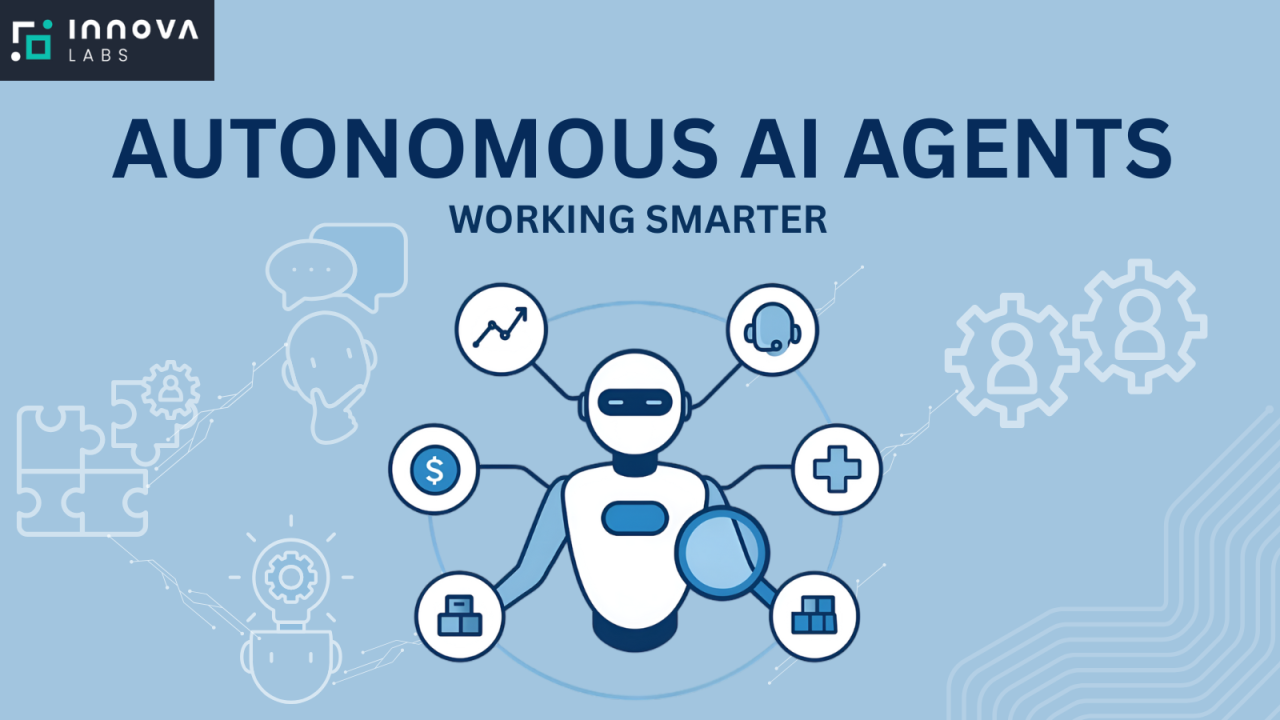AI in Finance: Revolutionizing the Future of Financial Services
Introduction:
In today’s digital-first economy, the financial sector stands at the forefront of technological innovation — and Artificial Intelligence (AI) is leading the charge. From Wall Street to mobile banking apps, AI is transforming how financial institutions operate, interact with customers, and make critical decisions. With its unmatched ability to analyze large volumes of data, forecast trends, automate tasks, and mimic human reasoning, AI is redefining finance as we know it.
This blog dives into how AI is impacting the world of finance — from data analytics and forecasting to customer service and fraud detection — and explores how financial organizations are embracing this evolution to stay competitive, compliant, and customer-focused.
What is AI in Finance?
Artificial Intelligence in finance refers to the use of algorithms and machine learning models to perform tasks that traditionally required human intelligence. These include:
-
Data analytics and performance tracking
-
Predictive modeling and financial forecasting
-
Real-time decision-making
-
Natural language processing (NLP) for customer service
-
Fraud detection and security
-
Personalized financial advice
AI doesn’t just automate—it enhances. It enables banks, fintechs, and investment firms to understand markets and customers better, learn from historical patterns, and offer services at scale with human-like precision.
Key Applications of AI in Finance
1. Data Analytics and Performance Measurement
In finance, data is everything. AI can process millions of data points in seconds, uncovering trends and patterns that humans might miss. Whether it’s tracking market performance, analyzing customer behavior, or evaluating portfolio risks, AI-powered analytics tools provide real-time insights for smarter decision-making.
2. Predictions and Forecasting
One of the most powerful uses of AI is its ability to predict future outcomes based on historical data. In finance, this is crucial for:
-
Stock price forecasting
-
Credit risk modeling
-
Currency and commodity predictions
-
Loan default probability estimation
AI models like regression analysis, deep learning, and recurrent neural networks (RNNs) are now commonly used to forecast financial metrics with increasing accuracy.
3. Real-Time Calculations for Trading
AI algorithms are integral to high-frequency trading (HFT). These algorithms can analyze market data and execute trades in microseconds, outperforming human traders in speed and efficiency. AI also supports robo-advisors, which use predictive analytics to recommend investment portfolios based on risk profiles.
4. Enhanced Customer Service with AI
Gone are the days of waiting in call center queues. AI-driven chatbots and virtual assistants now handle a wide range of banking queries 24/7. These include:
-
Account balance inquiries
-
Transaction history retrieval
-
Payment reminders
-
Fraud alerts
-
Loan eligibility checks
These systems use natural language processing (NLP) to understand and respond to queries just like a human, but faster and without fatigue.
💡 Example: Bank of America’s Erica, an AI-powered virtual assistant, has helped over 25 million users with financial advice and support.
5. Fraud Detection and Risk Management
AI is a game-changer in fraud detection. With the growing complexity of cyber threats, traditional rule-based systems are no longer enough. AI algorithms can:
-
Detect anomalies in real-time
-
Flag suspicious transactions
-
Analyze spending patterns
-
Prevent identity theft
By learning from historical fraud data, AI systems become better over time, offering a proactive approach to financial security.
6. Intelligent Data Retrieval and Automation
AI automates tedious back-office operations such as:
-
Document processing
-
Loan approvals
-
KYC (Know Your Customer) verifications
-
Compliance reporting
Robotic Process Automation (RPA) combined with AI helps financial institutions reduce manual errors, save costs, and increase processing speeds.
7. Personalized Banking Experience
Today’s customers expect personalized financial advice. AI analyzes spending habits, income levels, and saving goals to deliver:
-
Custom budgeting plans
-
Tailored investment recommendations
-
Targeted product suggestions (like credit cards or loans)
This personalization improves customer satisfaction and brand loyalty—and it’s all powered by AI.
8. RegTech and Compliance Monitoring
With evolving regulations like GDPR and AML, compliance has become complex. AI helps monitor transactions and ensure regulatory compliance by:
-
Scanning communications for red flags
-
Identifying non-compliant behavior
-
Automating reporting processes
-
Reducing false positives in compliance alerts
This field, often referred to as RegTech, is rapidly growing in importance.
Benefits of AI in Finance
Efficiency Gains
AI systems can handle repetitive, high-volume tasks far more efficiently than humans, reducing processing time and costs.
Improved Accuracy
With machine learning models continuously refining themselves, the accuracy of predictions and risk assessments keeps improving.
Better Decision-Making
By delivering real-time, data-driven insights, AI enables executives and investors to make informed financial decisions quickly.
Enhanced Customer Experience
From personalized services to instant support, AI helps financial institutions deliver a more engaging customer journey.
Challenges and Ethical Concerns
Despite the advantages, the adoption of AI in finance isn’t without its challenges:
Data Privacy
AI models require vast amounts of personal and financial data. Ensuring the privacy and security of this data is critical to maintaining customer trust.
Bias and Fairness
AI systems can unintentionally reflect or amplify societal biases present in historical data, leading to unfair credit scoring or loan rejections.
Explainability
Many AI models, especially deep learning ones, operate as black boxes, making it difficult to explain how decisions are made — a challenge in regulated environments.
Job Displacement
While AI creates efficiency, it may also lead to job redundancies, especially in administrative and support roles. However, it also opens opportunities in AI governance, data science, and fintech innovation.
Real-World Use Cases
💰 JPMorgan Chase
Developed a contract intelligence platform (COIN) that uses NLP to review legal documents in seconds — a task that used to take thousands of hours.
📊 PayPal
Uses AI to detect fraudulent activity in real-time, scanning millions of transactions for suspicious patterns.
📉 BlackRock
Utilizes AI to manage its Aladdin platform, which helps investors manage portfolios, monitor risk, and optimize asset allocation.
The Future of AI in Finance
AI is not just a trend — it’s becoming the foundation of modern finance. As models get more sophisticated and compute power increases, we can expect:
-
More transparent and explainable AI tools
-
Wider adoption of generative AI in reporting and advisory services
-
Integration with blockchain for secure smart contracts
-
Rise of autonomous financial agents
Financial institutions that invest in AI today will gain a significant competitive edge tomorrow.
Conclusion
AI in finance is more than just a technological upgrade—it’s a strategic transformation. By blending intelligence, automation, and analytics, AI empowers financial institutions to become faster, safer, and more customer-centric.
However, successful implementation requires ethical governance, transparent systems, and a deep understanding of both technology and finance. The future of money is intelligent — and AI is leading the way.




